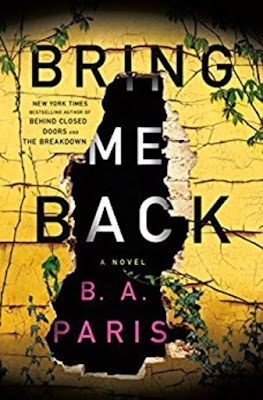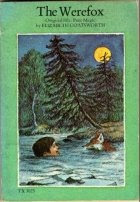243. Maps and Shadows by Krysia Jopek
 Maps and Shadows by Krysia Jopek (Canada) - (USA)
Maps and Shadows by Krysia Jopek (Canada) - (USA)Pages: 151
Ages: 18+
Finished: Nov. 8, 2010
First Published: Dec. 16, 2010
Publisher: Aquila Polonica
Genre: fictional memoir, WWII, Polish deportation
Rating: 4/5
First sentence:
Everyone has a story.
Acquired: Received a review copy from Aquila Polonica.
Reason for Reading: I enjoy memoirs of the war (even fictionalized) and I particularly like WWII books which introduce me to new information that is not so widely known.
This is a novel but is based on the true story of the author's father's family (his siblings and their parents). I also think there is a fuzzy line between where the truth ends and the fiction begins. It truly seems that the author used the novel format simply so she could write her family's story from all sides, giving voice to all four members old enough to tell their own story.
This story tells one Polish family's experience as Russia invades and sends all Poles to labour camps in two places in the frozen Arctic. The Jopeks are sent to Siberia and it is from this point their story is told as they are separated and survive the war being sent from country to country, with even a few years stop in Tanganyika, until they eventually end up as people stripped of their Polish citizenship and start a new life in America. Told in the first person, the narrative switches back and forth between the father, who at first chance leaves Siberia to join the Polish army for the good of his family, the eldest son (the author's father) who much later on joins the Young Polish Battalion (at first to help supply extra rations to his mother & siblings), the sister, the eldest child in the family and the mother, who tries to give her remaining children hope. The youngest boy is but 4 when they are deported and knows no other kind of life by the time the war is over.
I had a hard time with the Prologue but once the chapters started I became interested and the further on the story went the more involved I became in the lives of these people. I came to care for them and root for their survival. The Table of Contents tells us right off that the last chapter is called "The Burial" and with the wonder of whose burial it would be hanging over my head throughout the book I really came to love each and every one of them. Having read many books about the forced labour camps much of the information wasn't new to me, yet of course it is always shocking that people were treated this way, and each person's story is unique in its own way.
What I found absolutely fascinating was the whole role Poland had in WWII and how it's people were treated by the "Allies". First they are invaded by Communist Russia (their long time enemy) and then suddenly Russia becomes their "ally" in the war. The Polish people lost their country to Communist Russia; Poland had fought under its own flag in the war and yet no one came to help them get their country back. They were forbidden to march in the victory parade at the end of the war by the British and US so as not to offend Lenin. Stripped of their citizenship if they did not immediately return to the new Communist ruled Poland thousands of exiled Poles became "displaced persons" who had fought a war to save their country's freedom, only in the end to be scattered to the ends of the earth: Britain, Argentina, Brazil, Australia, Canada, Mexico, United States and the few who did go back home knowing it would never be the same with their enemy now in control.
A very vivid personal tale of one family's experience of the war from their own unique experience, which would have been echoed by many other Polish families in similar yet unique to them ways. Also, an extremely eye-opening look at a not so familiar aspect of World War II's history, the Polish experience, a people who fought hard and ended up with no country or citizenship.


Great review! I was curious about this book. I have been seeing it pop up here and there. I like WWII era books too, and this may be an even more interesting read since I found out through a genealogy search that some of my Russian relatives were originally living in Poland until the war.
ReplyDeleteThanks for sharing!
I too like this period very much and enjoyed your review.
ReplyDeleteI love memoirs too, and really and truly, I imagine they're all fictionalized in some way.
ReplyDeletebermuda, I agree. Not that there's anything wrong with it. But a memoir does only tell one person's side of the story from what they can *remember* and of course, they edit out what they don't want public and I imagine what they do remember at times will be through rose-coloured glasses and at others with bitterness. I certainly see your point.
ReplyDeleteI do so much more enjoy them than biographies though when someone else tries to dissect a person's life and often erroneously interpret why they did what they did. I rather hear it straight from the source even if they don't spill it all.
This does sound fascinating. I'm glad to see you became so invested in the family's story, as I'll be reading this book shortly. I don't mind when memoirs have some element of fiction as long as it's disclosed. But I do believe that most memoirs aren't entirely factual, whether intentional or simply because the passage of time clouds the memory.
ReplyDeleteI'll link to your review on War Through the Generations.